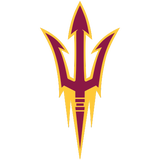





































































































































Was Lane Kiffin A Failure With USC Football?
Was Lane Kiffin a failure at USC? The former Trojan head coach and new FAU hire is still bothered by the perception.
On Thursday, Sports Illustrated’s Pete Thamel dropped a profile of “remastered” FAU head coach Lane Kiffin, complete with a cascade of quotable gems from one of the most controversial figures in college football.
A joke about who takes more of his money — the government or his ex-wife? Check.
A line about needing Nick Saban more than he needed Pete Carroll? Check.
A musing about writing a book called “I Hate Lane Kiffin” by Lane Kiffin? Check.
USC is discussed early and often in the piece, most notably because of how much it seems to bother Kiffin how his tenure with the Trojans is perceived:
“I don’t care about what people think about me that don’t know me,” he says. “But the one thing that bothers me of all the places is the general perception was that I was a failure at USC as a head coach.”
Kiffin explained to Thamel that he was told the administration was prepared to deal with the difficulties of sanctions but “once the ball was kicked no one remember the sanctions.”
He added, “I don’t think there’s any way you can keep winning through those penalties.”
Is Kiffin right? Was he a failure at USC? Or is the perception unfair?
Kiffin went 28-15 in just over three seasons at USC with a 65.1 win percentage. During that time, the Trojans were hit with debilitating sanctions, including a two-year postseason ban and the loss of 30 scholarships over three years.
He also took over a Pete Carroll-coached team which went 9-4 and finished fifth in the Pac-10.
Kiffin’s 2010 team only won eight games, finishing third in the conference, but the bowl ban blocked the opportunity to get to nine wins.
In 2011, USC stormed to a 10-2 record, winning the Pac-12 South. However, they were barred from participating in the conference championship game or a bowl game, so Kiffin never had the chance to really capitalize on the success of that season with a BCS bowl appearance or conference title.
Instead, the Trojans went into the 2012 season on a run-away freight train worth of hype, only to crash and burn. USC fell to a disappointing 7-6, losing five of their last six games, including an embarrassing display against Georgia Tech in the Sun Bowl.
In Kiffin’s defense, the four regular season losses were by an average of eight points and came against ranked Oregon, UCLA and Notre Dame squads.
However, the psychological damage was done, between the minor controversies that seemed to stick to Kiffin like glue, the collapse on the field, rumors of brawling coaches and a team which seemed to quit in the bowl game.
When USC started the 2013 season with a tooth-pulling loss to lowly Washington State at the Coliseum in the midst of an undecided quarterback battle, patience with Kiffin was at an all time low.
Losing to Arizona State in a shootout on the road, Kiffin was unceremoniously fired.
More from Reign of Troy
Looking back on the circumstances of the Kiffin era, his gripe about being undervalued as a head coach holds some water. Kiffin’s 10-win 2011 season, without the benefit of a bowl game, is still the best mark by a Trojan coach not named Pete Carroll since Larry Smith in 1988.
It’s also possible that Kiffin might have replicated, or bettered, the winning streak USC went on under Ed Orgeron, building more goodwill as the Trojans emerged from the shadow of sanctions.
However, the 2011 season and hypothetical success in 2013 doesn’t wipe out the mediocrity of the 2010 and 2012 seasons, especially coming off the back of the uber-successful Carroll era. Nor does it excuse Kiffin’s decision-making in the lead up to the 2013 season, which contributed to the poor start and his firing.
When it comes down to it, Kiffin may not have been a failure at USC, but he was hardly a success. At USC, where the standards are as high as anywhere in the country, being anything less puts you at risk.
Either way, he’s looking at FAU as the opportunity to rewrite his narrative. The more he wins with the Owls, the more he’ll validate the idea that his time at USC is being unfairly judged.
